Take a journey into the captivating world of Mamaki tea with our insightful blog. Uncover its intriguing history, health perks, and more. From Hawaii’s lush landscapes to your cup, explore the unique advantages this tea brings. Delve into Mamaki tea benefits for enhanced well-being. Learn about its historical roots and cultural significance. We’ll also touch on potential mamaki tea side effects, giving you a holistic view of this aromatic elixir. Join us on an aromatic expedition through the enriching dimensions of Mamaki tea!
What Is Mamaki Tea?

Mamaki (or Māmaki in Hawaiian) is a native Hawaiian herbal tea. Mamaki, known botanically as Pipturus albidus, is a member of the nettle family and is recognized as an ancient miracle herb.
The Mamaki plant grows throughout the Hawaiian Islands both in the wild and on conventional farms.
The plant can be small and shrub-like or can grow into a large tree, depending on the strain and environment. The plant boasts large, broad leaves that vary from light green to deep emerald with striking red veins.
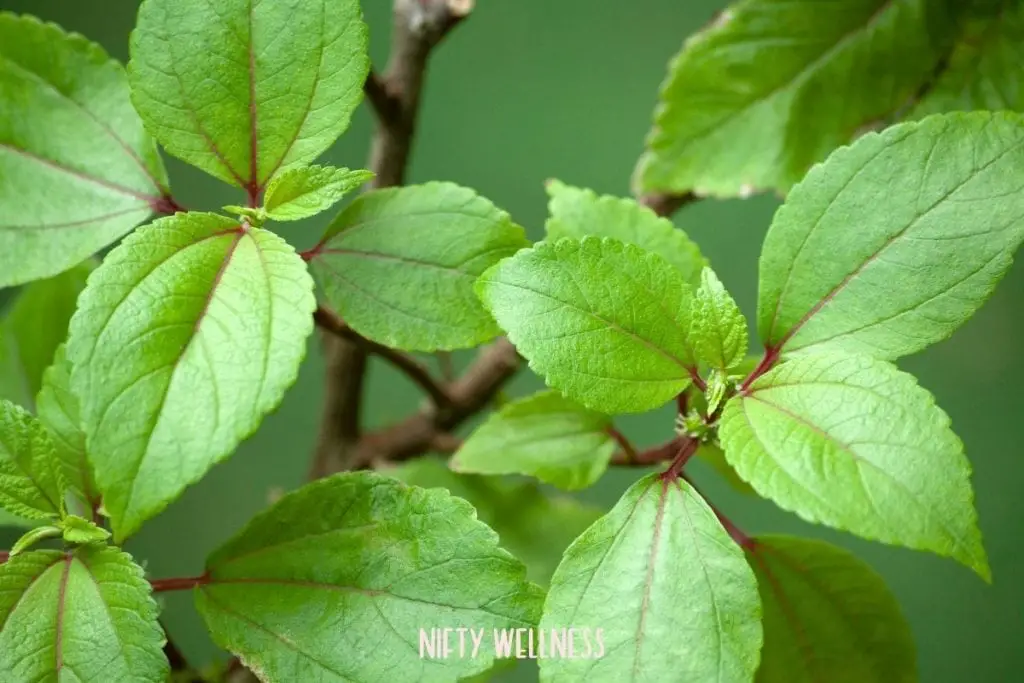
Mamaki has a long history in Hawaii. It traditionally served as a universal tonic and clothing dye. While the leaves of Mamaki are used for tea, native Hawaiians once used the entire plant.
Its bark was used to make cloth, while its roots were used as dyes. When the plant flowered, native Hawaiians used its berries for medicinal purposes.
Natives also use Mamaki tea to lower blood pressure and cholesterol, promote digestion, relieve general weakness, and cleanse toxins from the body. Mamaki tea offers other health benefits for those who drink this medicinal, herbal tea.
Check out our blog RealTEA Check: The Best Online Tea Store in 2023! Elevate your tea ritual with the exquisite collection of teas available at the best online tea store.
Health Benefits Of Mamaki Tea


The Mamaki leaves offer a plethora of health benefits that we can experience by drinking this natural Hawaiian tea. Rich in antioxidants, Mamaki tea supports immune health and helps combat oxidative stress. Its anti-inflammatory properties contribute to joint and muscle well-being. The natural abundance of vitamins and minerals aids in overall vitality. With a soothing effect on the digestive system, Mamaki tea promotes gut health. Additionally, its calming properties make it a delightful choice for relaxation, enhancing both mental and physical wellness.
Source Of Antioxidants
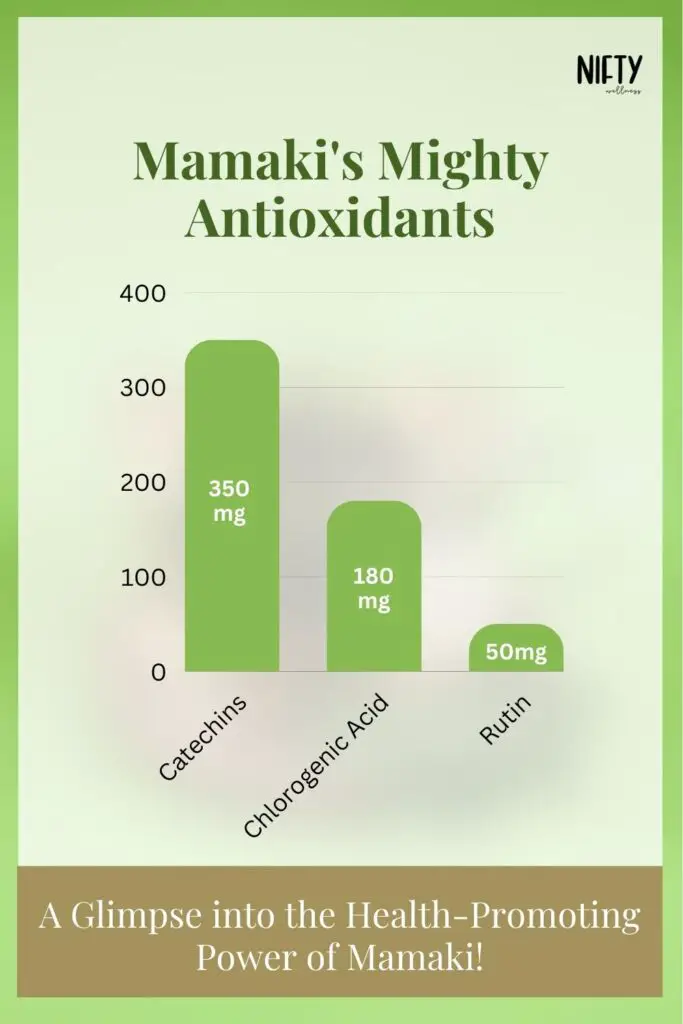
Mamaki tea is an excellent source of antioxidants. According to one study, Mamaki leaves were composed of three primary polyphenols: catechins, chlorogenic acid, and rutin.
Catechins: Catechins are natural antioxidants that, in addition to preventing cellular damage, provide the body with other benefits.
These antioxidants are found in the most incredible abundance in the leaves of various tea plants, making Mamaki an excellent source of these mighty compounds.
Tea catechins are associated with health and longevity in many ancient cultures, and there is science to back it up. An increasing amount of studies have found catechin-rich foods to prevent and treat chronic diseases.
One 2008 study found catechins to have anti-inflammatory and anti-hypertensive properties beneficial in the treatment and prevention of cardiovascular diseases.
Chlorogenic acid: Chlorogenic acid is a potent polyphenol compound that has been shown to aid in the digestion of carbohydrates and glucose.
This natural antioxidant can thus help people lose weight, lower blood pressure, lower blood sugar levels, and improve mood.
Rutin: Rutin is a bioflavonoid with strong antioxidant properties. It has been shown to aid in circulation, strengthening and increasing the flexibility of blood vessels.
Additional research has demonstrated that rutin can prevent the development of blood clots, thus dubbing rutin as a therapeutic agent with the capabilities to prevent heart attack and stroke.
Rutin has also been an effective antioxidant for controlling body weight and encouraging healthy weight loss.
Natural, Caffeine-Free Stimulant
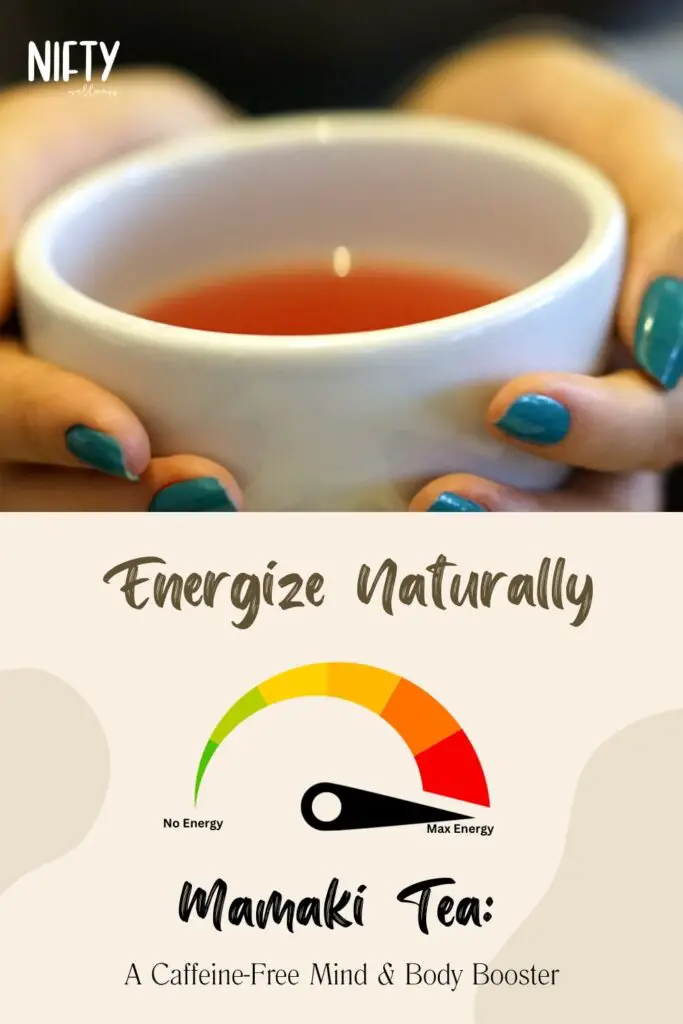
Hawaiian natives have long enjoyed Mamaki tea for its ability to stimulate and invigorate the mind and body without caffeine.
Mamaki’s high content of catechins and chlorogenic acid encourage brain activity and boost metabolic rates, uplifting one’s mood and energy levels. This natural Hawaiian tea is also believed to have therapeutic benefits for depression.
Protects Against Cancer

Research has linked oxidative damage to several types of cancer, including breast, prostate, and colorectal cancer.
Fortunately, Mamaki’s antioxidants protect the body against the development of chronic diseases, including cancer. One of Mamaki’s antioxidants, chlorogenic acid, has been studied for its ability to reduce cancer growth.
A 2019 study identified chlorogenic acid as an effective cancer treatment due to its ability to induce cancer cell differentiation.
Thus drinking Mamaki tea can aid your body with the antioxidants and other disease-fighting compounds needed to sustain optimal health and protect the body from developing cancer.
(Another little-known natural tea that fights cancer is kukicha, read more about it.)
Benefits Digestive Health
Mamaki tea is also known to aid in digestion by supplying the body with antioxidant chlorogenic acid.
Chlorogenic acid is believed to soothe digestive disorders such as irritable bowel syndrome, constipation, excessive flatulence, and more.
Mamaki tea’s catechins may also benefit overall digestive health as one study found tea catechins to play several valuable roles in the digestive tract.
Another 2017 study found these natural polyphenolic phytochemicals to help prevent and treat inflammatory bowel disease.
Supports Heart Health
Drinking Mamaki tea can support heart health due to two of its primary antioxidants: chlorogenic acid and rutin.
Both of these have been shown to lower blood pressure, improve circulation, strengthen blood vessels, and prevent blood clots—all of which offer great promise in preventing degenerative heart conditions such as heart attack and stroke.
Likewise, a catechin found in most teas known as Epigallocatechin Gallate or EGCG has been shown to promote heart health by reducing major risk factors for heart disease such as blood pressure, inflammation, cholesterol, and plaque build-up in blood vessels.
Read our blog Health Benefits of Tea: Sip Your Way to a Healthy Lifestyle. Discover how this ancient beverage enriches your life, promoting overall well-being.
How To Make Mamaki Tea
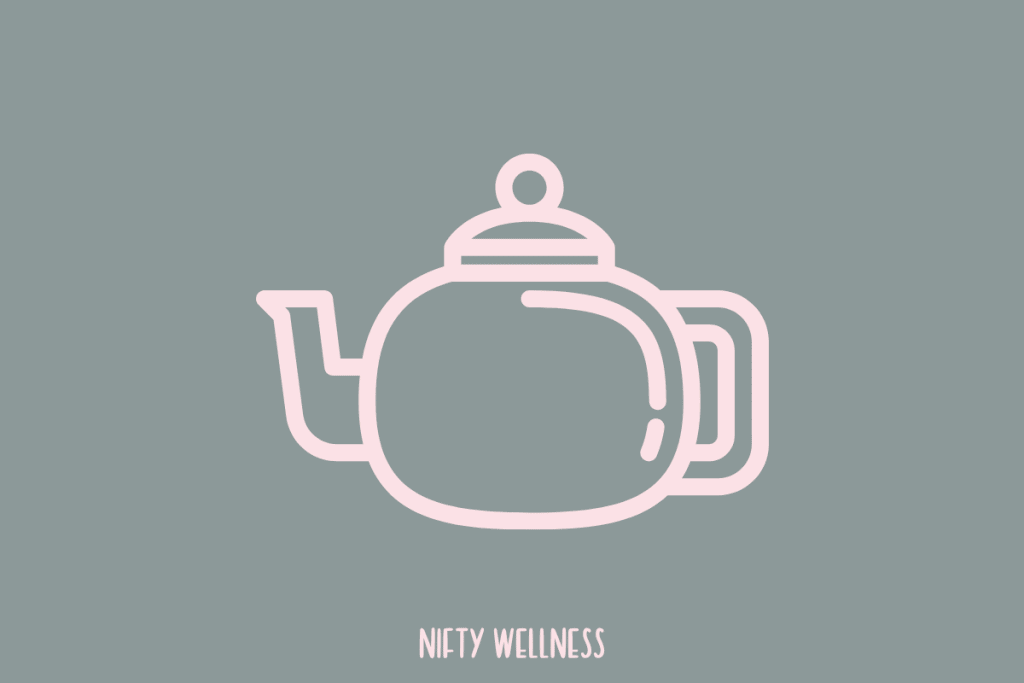
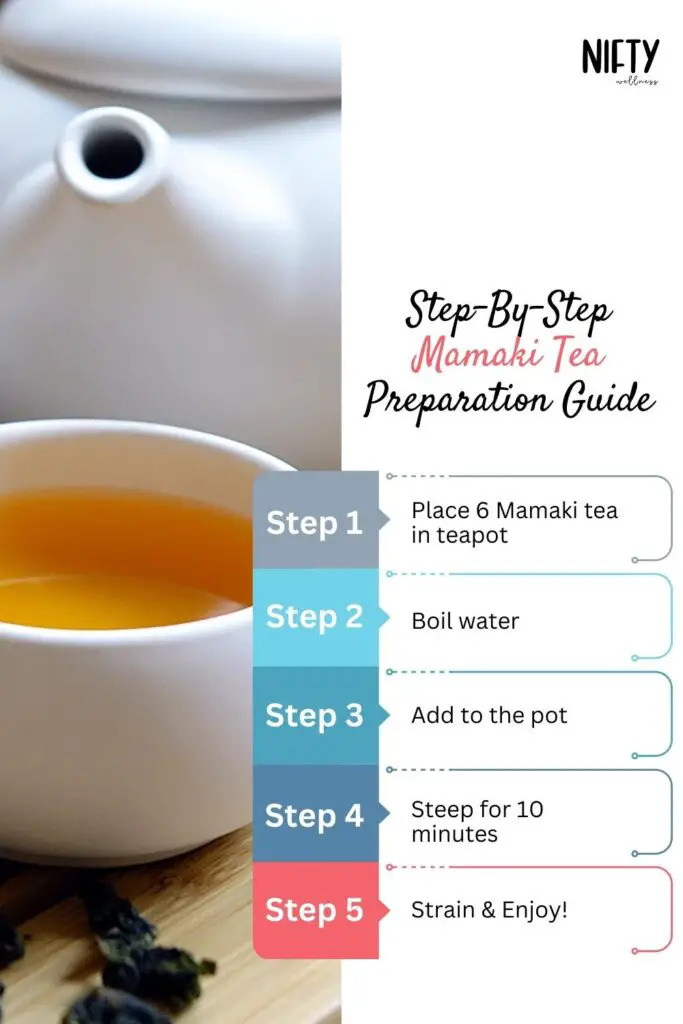
- Place fresh or dried Mamaki leaves into a teapot or teacup. You will want about six leaves per cup.
- Boil water and then pour it over the Mamaki leaves.
- Allow to steep for ten minutes, then strain, and enjoy.
Mamaki tea can be served hot or cold and sweetened with honey, lemon, or milk. Mamaki tea can also be cold brewed overnight. Fill a glass or pitcher with Mamaki leaves and water, then leave it in the fridge to steep.
Conclusion
Mamaki tea stands as a remarkable infusion deeply rooted in Hawaiian culture and nature’s bounty. With a rich history intertwined with everyday life in Hawaii, Mamaki has evolved from a universal tonic and clothing dye to a revered herbal tea offering numerous health benefits. Packed with antioxidants like catechins, chlorogenic acid, and rutin, Mamaki supports immune health, aids digestion, and promotes heart health. Its natural, caffeine-free stimulant properties uplift both mind and body, making it a cherished beverage. Embrace the goodness of Mamaki tea, a holistic elixir that nurtures your well-being with every sip.
Frequently Asked Questions

What Does Mamaki Tea Taste Like?
To some, Mamaki tea tastes like a combination of green tea and aloe vera water. This Hawaiian natural tea is said to have a refreshing and soothing herbal taste.
Where Does Mamaki Tea Grow?
Mamaki is native to Hawaii and is not known to grow anywhere else in the world. The Mamaki plant can grow at all elevations and is commonly found in the wild, mostly growing on the Big Island, Oahu, and Maui.
What is Mamaki Tea Good For?
Mamaki tea positively influences one’s health in a multitude of ways. In Hawaii, this natural tea is consumed to aid digestion, alleviate weakness, lower cholesterol, and detox the body from toxins.
Mamaki tea also contains potent antioxidants: catechins, chlorogenic acid, and rutin.
Among their many functions in the body, these antioxidants have been shown to promote overall heart health, protect the body from developing chronic diseases such as cancer, and soothe the digestive tract.
Are There Any Side Effects to Drinking Mamaki Tea?
There are no known significant side effects associated with drinking Mamaki tea. However, it is suggested to limit your intake of Mamaki tea to no more than three cups per day since the tea is a strong diuretic.
Does Mamaki Tea Have Any Vitamins Or Minerals?
Mamaki tea leaves contain small amounts of macronutrients such as fat, protein, carbohydrates, and fiber.
In addition, Mamaki tea offers several micronutrients in the form of minerals: calcium, phosphorus, magnesium, iron, boron, manganese, zinc, and more.
